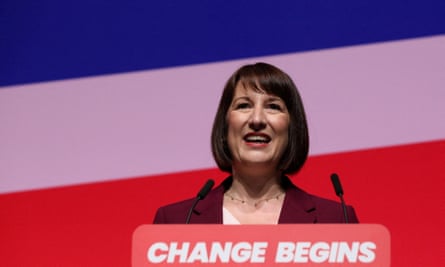Government plans to impose VAT on private schools from 1 January next year may have to be delayed because of warnings from unions, tax experts and school leaders that meeting the deadline will cause administrative chaos and teacher job losses, and put pressure on the state sector.
The Treasury on Saturday night refused to confirm that the plan to impose 20% VAT on private school fees would go ahead from 1 January, as confirmed by the chancellor, Rachel Reeves, in July, instead saying it would be introduced “as soon as possible”. Later, however, after publication of this story, the Treasury changed its line and said it was planning to stick by the 1 January deadline.
Numerous organisations in the education sector, including ones that back the principle of imposing VAT, are calling for a delay until next September to give private schools more time to register for the new tax, assess the impact and adapt.
There are also concerns about the effect on the special educational needs and disabilities (Send) sector if more state schools have to carry out Send assessments on pupils moving over from private schools.
Leaders of private schools say they are still unable to register for VAT because the plans are not yet enshrined in law and will not be until after the budget on 30 October.
Accountants and tax experts says this will be too little time for organisations, often with little tax expertise, to adapt. Bills for the term starting in January are normally sent out in December. Doubts about the timetable are being raised after the Treasury was bombarded with calls for a delay and demands to carry out a proper impact assessment in the responses to an official consultation, which ended last month.

The NASUWT teaching union said in its response that while it shares the government’s ambition to “break down the barriers to opportunity” and to recruit 6,500 more teachers to the state sector, it is worried about redundancies for those in the private sector and the risk of a permanent loss of jobs from the profession.
It suggests that an impact assessment should be carried out on the possible increase in Send assessments in the state sector and the level of provision needed.
It says: “We request that a more reasonable timeframe is proposed in order to implement the change fairly and without excessive disruption for teachers, pupils and parents.”
The Association of School and College Leaders says in its submission: “We would strongly recommend that the government undertakes and publishes a comprehensive impact assessment and a full consultation on these proposals before they are formalised in legislation, and that it delays their implementation until September 2025 at the earliest.”
While the government is not considering the watering down of the plan’s content, any delay would be an embarrassment for the Treasury, which has already made clear it is reconsidering parts of Labour’s manifesto plan to scrap non-dom tax status over worries that the reforms will bring in less money than expected.
There is concern that planned changes on tax arrangements for non-doms, which aimed to raise extra money to spend on public services such as the NHS, could prompt wealthy foreigners to simply leave the UK.
The VAT plan for private school was, like that for non-doms and their tax arrangements, one of Labour’s more eye-catching policies, which it said would help pay for new teachers, as well as free breakfast clubs in all primary schools.
after newsletter promotion
Asked whether the plans could be delayed, the Treasury issued a statement from a government spokesman that did not address the question directly: “We want to ensure all children have the best chance in life to succeed. Ending tax breaks on private schools will help to raise the revenue needed to fund our education priorities for next year, such as recruiting 6,500 new teachers.
“The government has carefully considered representations on this policy and will publish a response to the consultation at the budget.” Sources said only that the plans would be introduced “as soon as possible”.
In its submission to the Treasury consultation, the Chartered Institute of Taxation, the leading professional UK body on aspects of taxation, said: “We are concerned that neither HMRC [HM Revenue and Customs] nor the private schools will be ready to implement the change in VAT liability effectively with a commencement date of 1 January 2025.
“As there is currently no tax information and impact note or published guidance, with an implementation date of 1 January 2025 that is effectively shortened by schools closing mid-December, we recommend that the implementation date be delayed accordingly.”
The Association of Taxation Technicians said: “The proposed commencement date of 1 January does not give sufficient time for schools or HMRC to adequately prepare and deliver the proposed changes. Commencing partway through an academic year could also introduce additional difficulties for schools and pupils. Consideration should be given to deferring commencement to September 2025.”
Julie Robinson, chief executive of the Independent Schools Council, said: “Even those who are in favour of imposing VAT on the independent sector are saying that January 1 is not feasible.”
